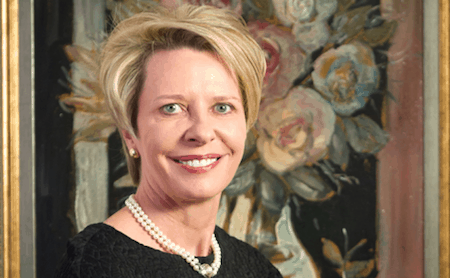The SARChl Professor of International Constitutional Law at the Faculty of Law, University of Pretoria, South Africa, delivered the second ‘Perspectives’ Lecture at the Foundation on “The outlawing of ‘unconstitutional changes of government’ in the institutional framework of the African Union and its impact on the (de)-recognition of governments” on 9 September
A leading scholar in public international law, Professor De Wet presented her ideas on the reception of democratic legitimacy as a precondition for the recognition or derecognition of governments in the African Union. Building on two main concepts, the democratic legitimacy of origin and the democratic legitimacy of exercise, she presented the practice of the African Union in suspending and then re-admitting states that are subject to unconstitutional changes of government. Alongside these two main concepts, Professor De Wet argued that the overriding concern for the African Union as well as other States’ recognition/de-recognition of States will largely be determined by the course of action that favours stability over the clear and immediate criteria of democratic legitimacy of both origin and exercise.
The lecture was also attended by two members of the Scientific Advisory Board of the Max Planck Foundation, Dr Kamal Hossain and Judge Abdul Koroma, who commented on the themes discussed from their extensive experience and comparative perspectives.
The lecture was followed by an engaging discussion between Professor De Wet and Foundation research fellows on academic and practice-oriented questions related to the Foundation’s work and questions on constitutional or democratic legitimacy and the African Union’s approach to Member States’ practices in recent decades.

